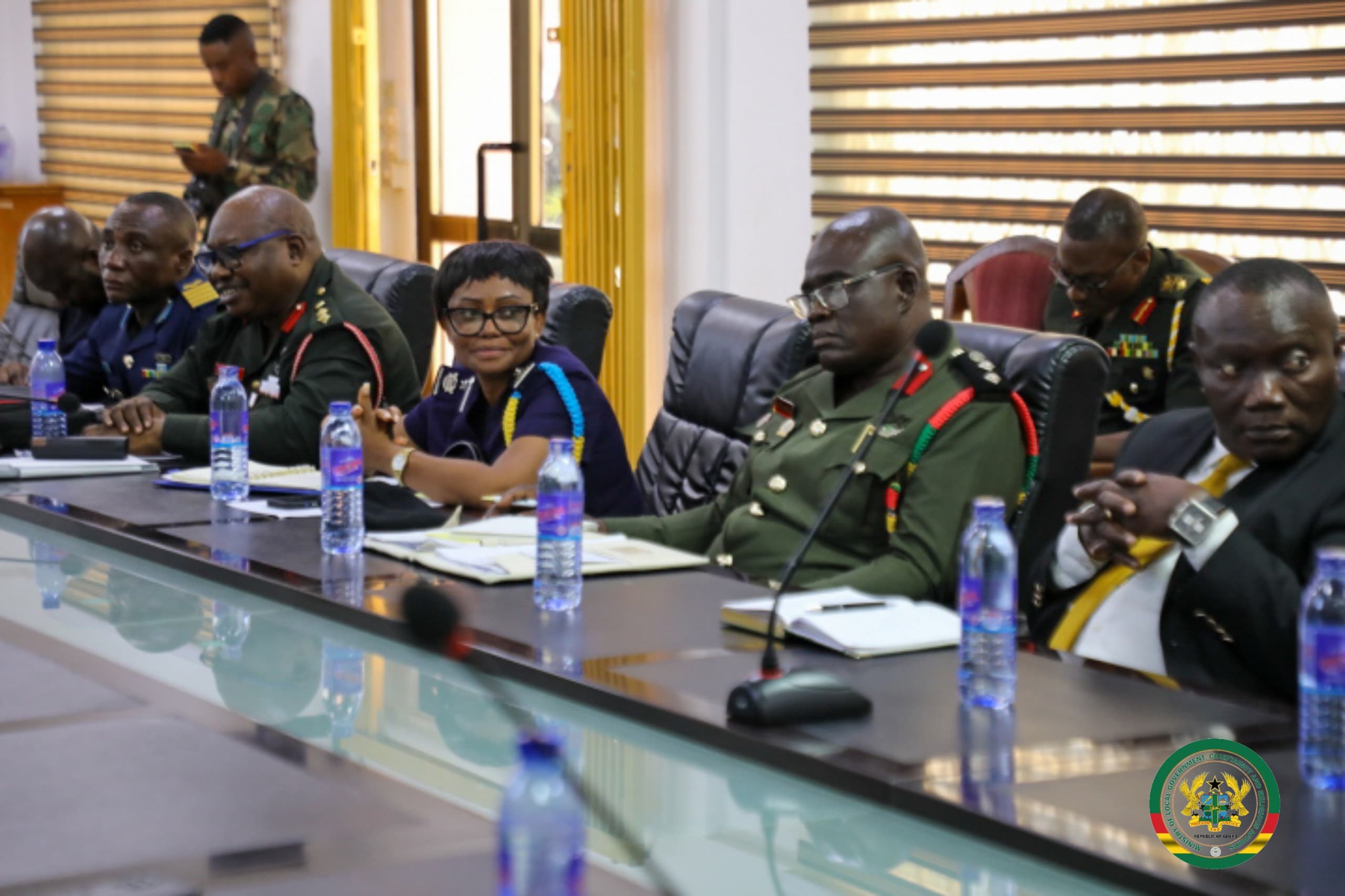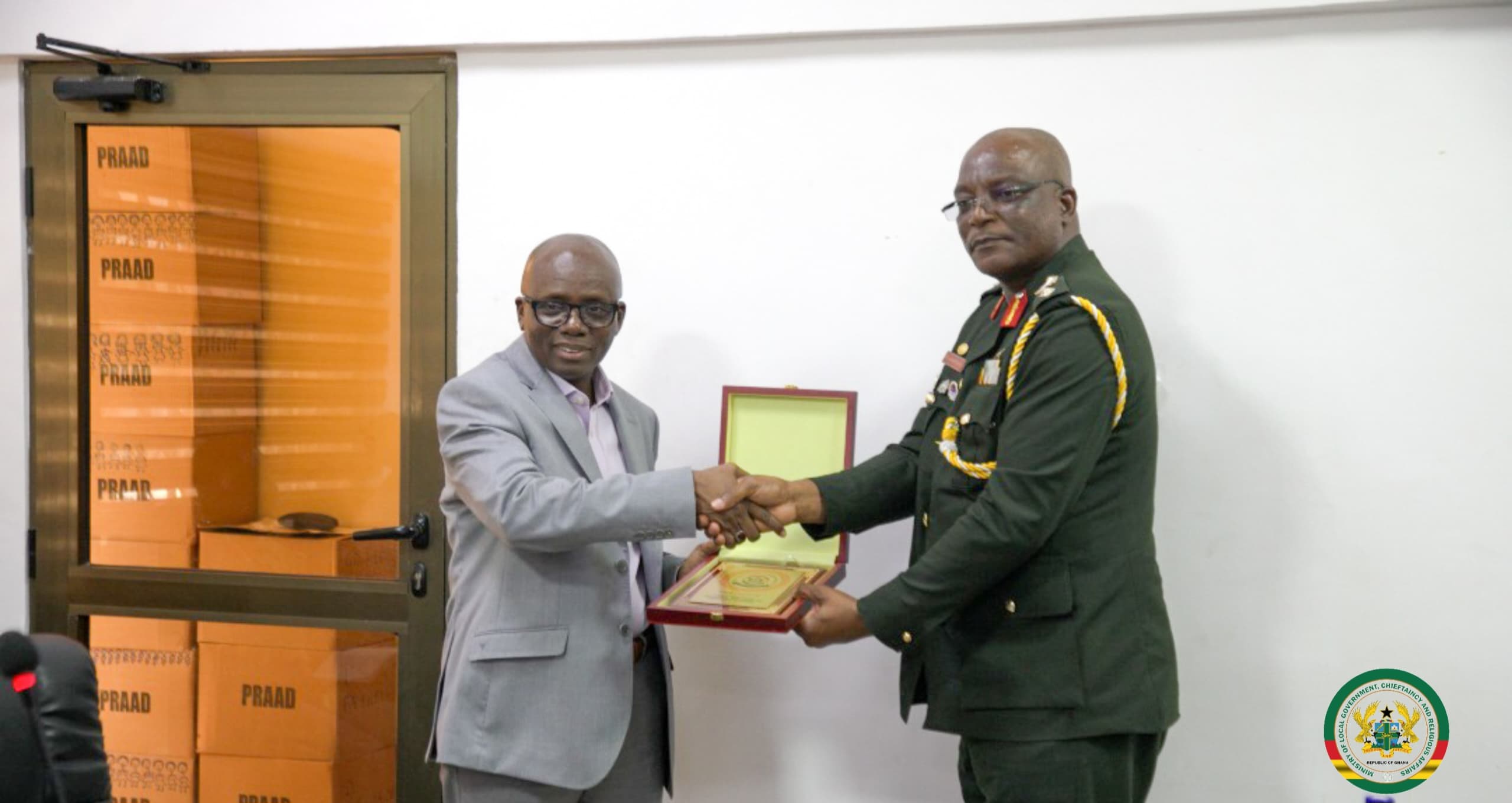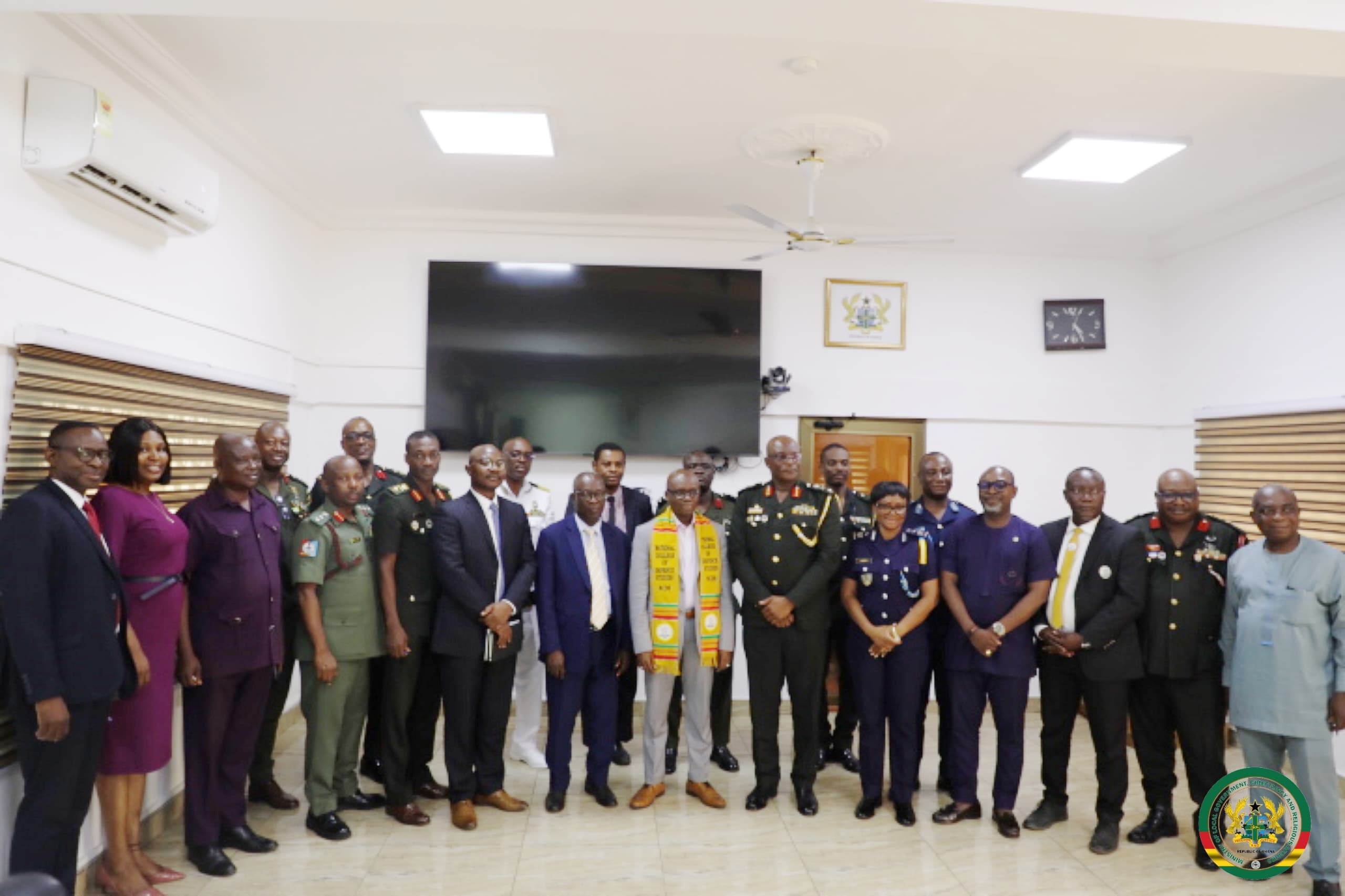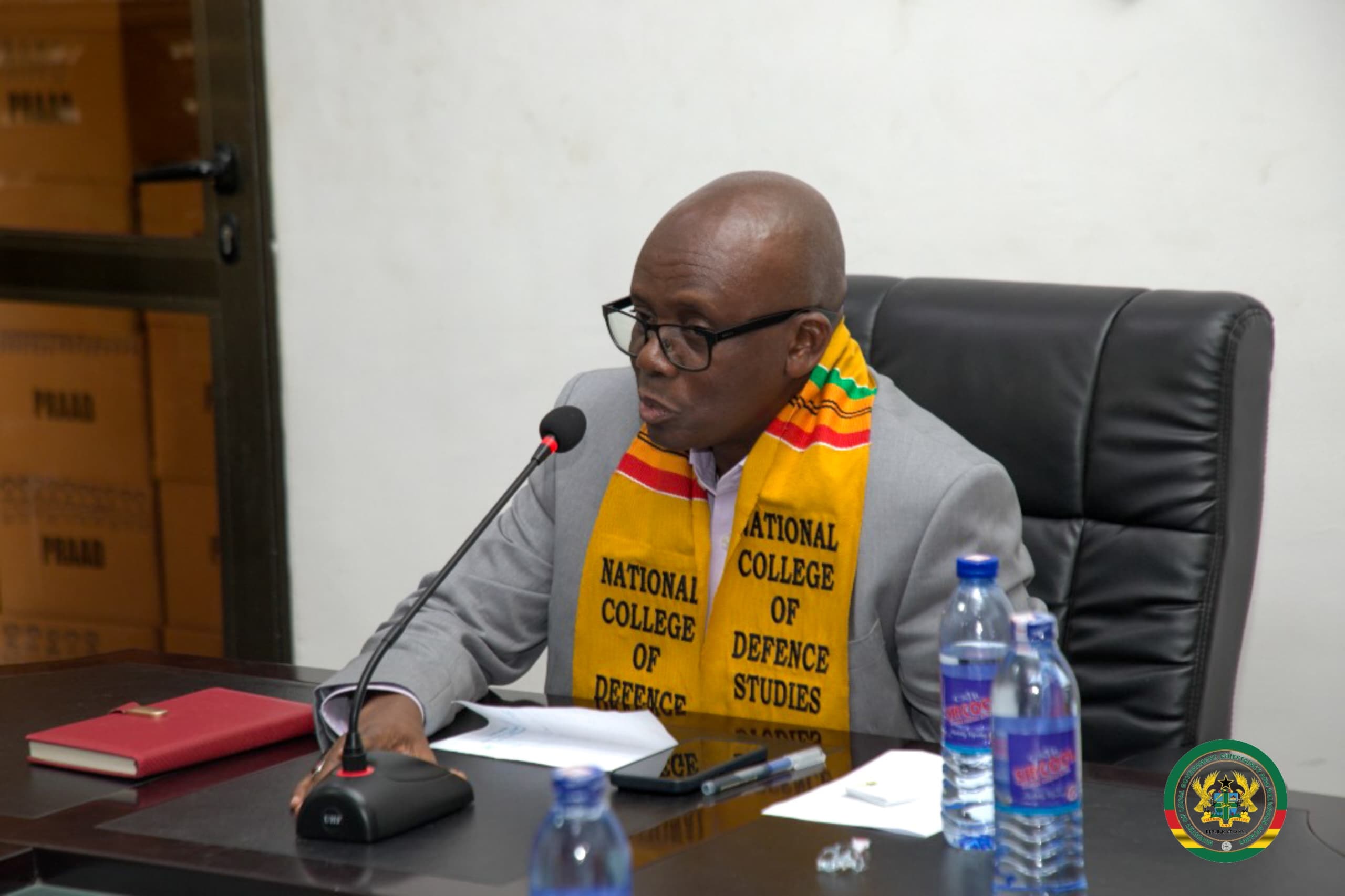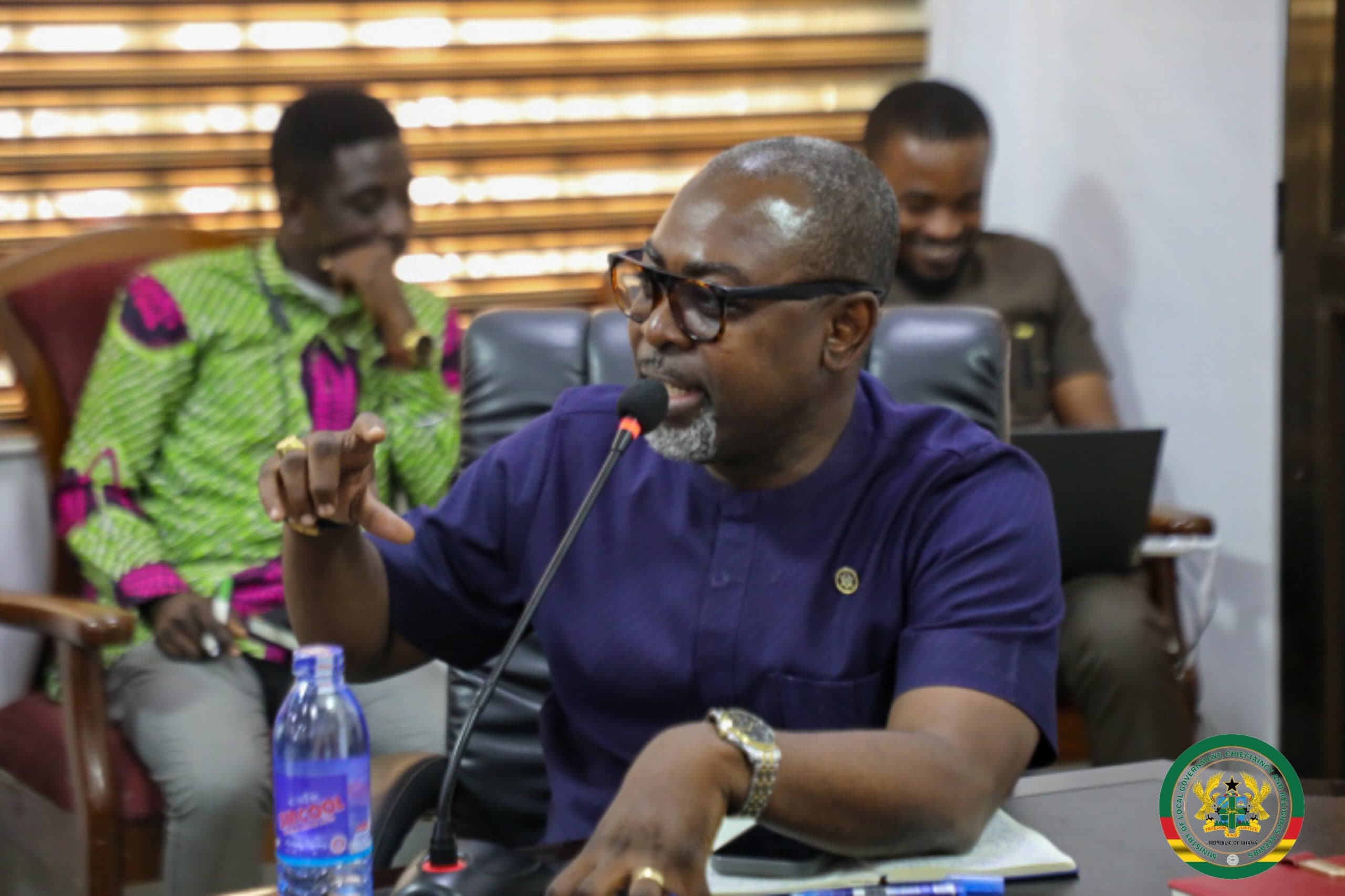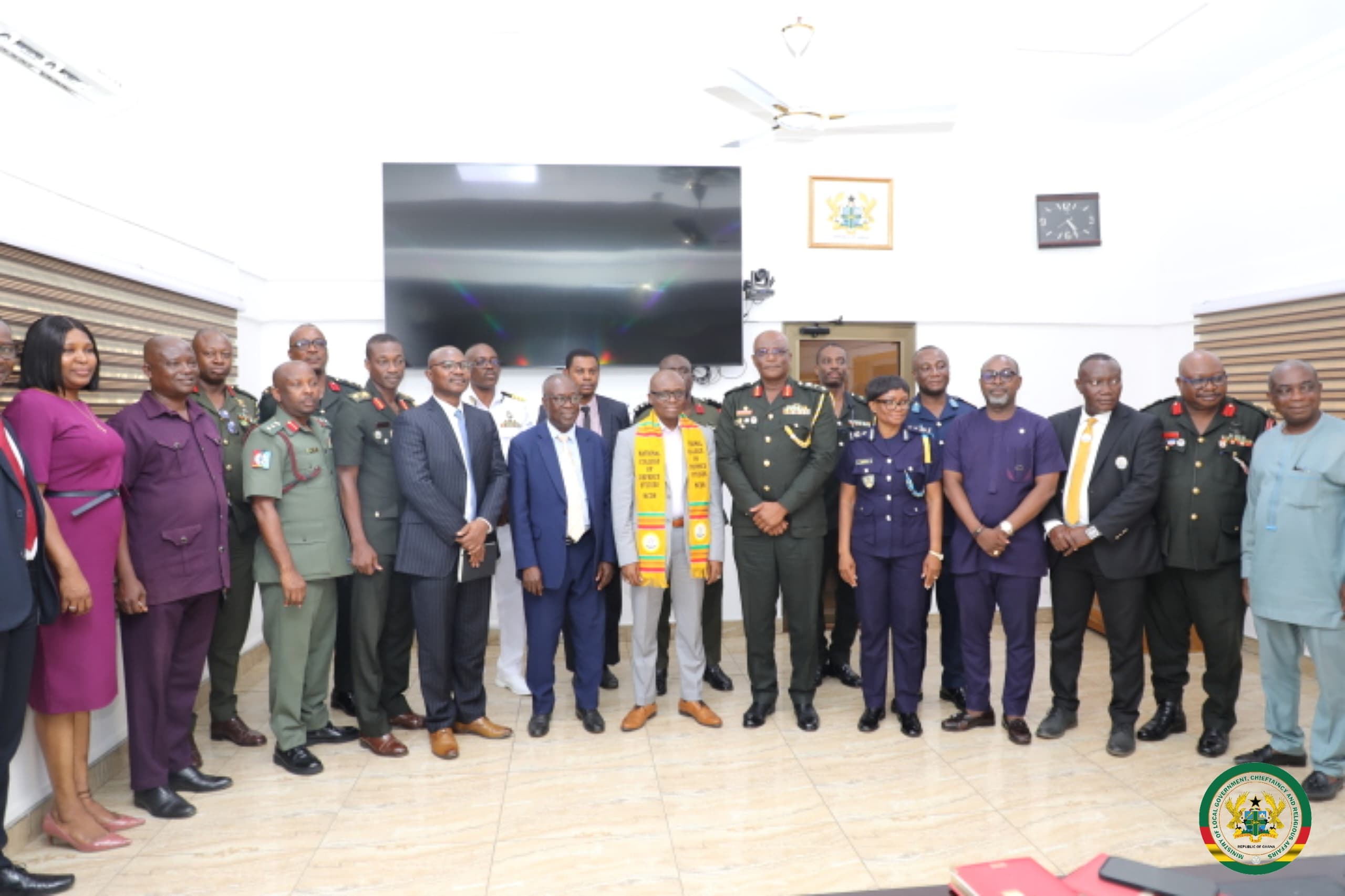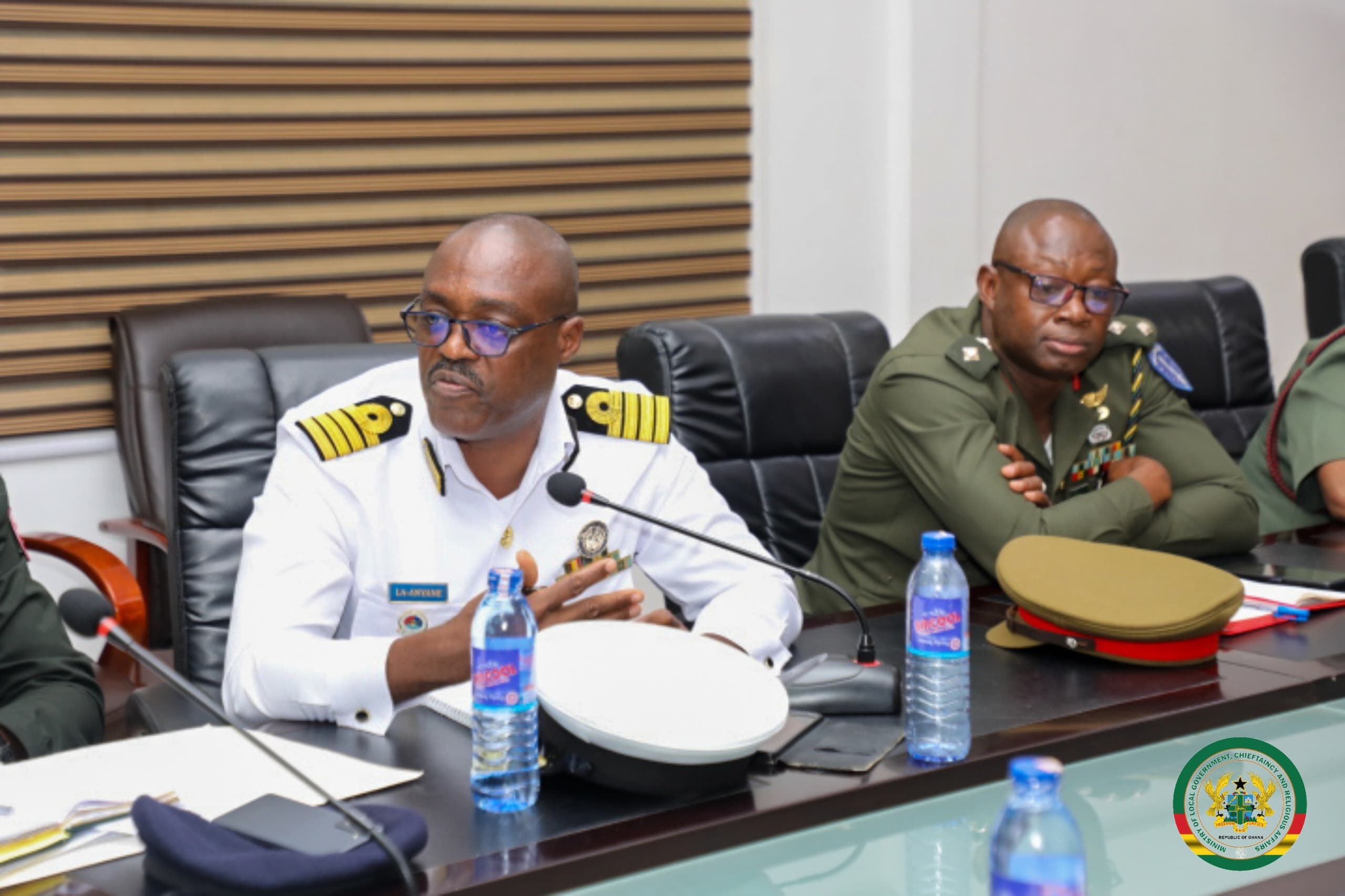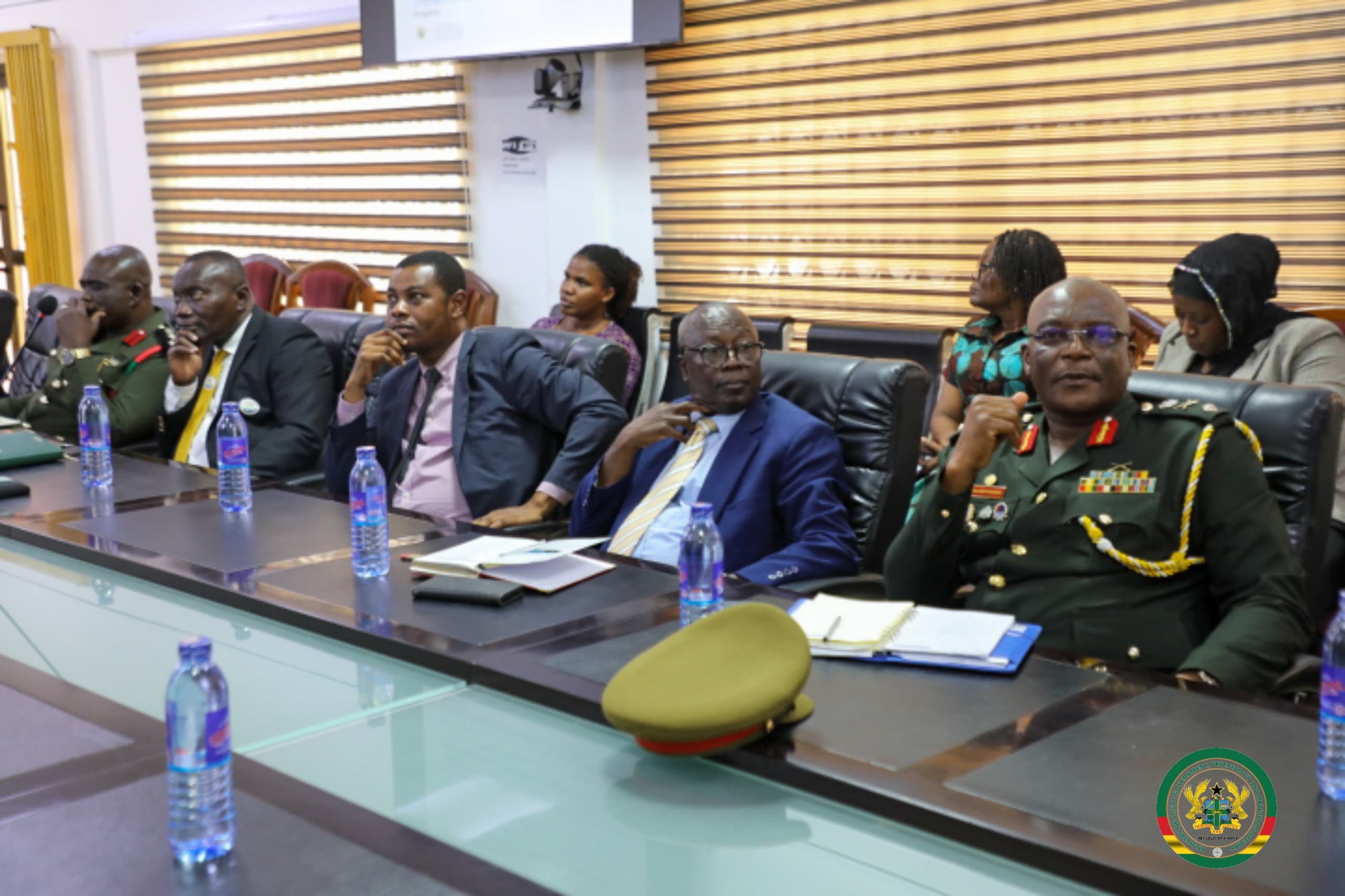On April 16, 2025, the Ministry of Local Government, Chieftaincy and Religious Affairs has held a strategic engagement with a visiting military delegation, providing insight into Ghana’s decentralization journey and local government system. The meeting formed part of ongoing efforts to promote inter-institutional cooperation and share Ghana’s experiences with international partners.
Welcoming the delegation, the Chief Director of the Ministry, Mr. Amin Abdul-Rahaman, expressed appreciation for the visit and emphasized Ghana’s longstanding commitment to decentralization and grassroots governance. He noted that Ghana’s local government system has evolved significantly over the past three decades, marked by key policy reforms and institutional development.
“We have made considerable progress over the last 30 to 40 years in shaping a responsive and inclusive local governance system,” Mr. Abdul-Rahaman stated. “Decentralization in Ghana is not an event but a continuous process. We remain committed to refining it to ensure it delivers real value to communities, especially at the grassroots level.”
He acknowledged that while progress has been made, challenges still exist, particularly in coordinating the roles of various public institutions and enhancing service delivery. However, he underscored the country’s resolve to overcome these challenges through shared learning, innovation, and commitment to reform.
Following his remarks, Mr. Abdul-Rahaman invited the Director in charge of Local Governance and Decentralisation, Pln. Seth Passah, to deliver a comprehensive presentation on Ghana’s local government architecture.
In his presentation, Pln. Passah elaborated on the legal and institutional foundations of Ghana’s decentralization system, guided by the 1992 Constitution and the Local Governance Act, 2016 (Act 936). He explained that Ghana operates a three-tier structure comprising the central government, regional coordinating councils, and Metropolitan, Municipal, and District Assemblies (MMDAs), with the district assemblies serving as the core planning and implementation authorities at the local level.
“Our laws recognize the district assemblies as the only planning authorities within their jurisdictions. Any agency operating at the local level must engage with them in planning and executing development programmes,” Pln. Passah emphasized.
He also outlined the role of the Ministry as a policy and coordination hub for local governance, tasked with ensuring that all decentralization-related activities are aligned with national objectives. Notably, he highlighted the establishment of the Inter-Ministerial Coordinating Committee on Decentralization (IMCC), chaired by the President of the Republic of Ghana, as a strategic mechanism to drive cross-sectoral collaboration and ensure compliance with decentralization mandates across government institutions.
The engagement ended with an interactive session, during which both parties exchanged ideas on strengthening institutional frameworks, deepening decentralization, and fostering effective service delivery through knowledge exchange.
The Ministry reaffirmed its commitment to partnerships that enhance mutual learning and further Ghana’s local governance agenda.
Source: Matilda Tettey/Darling Maame Efua Cann
(Public Relations Unit MLGDRD)
